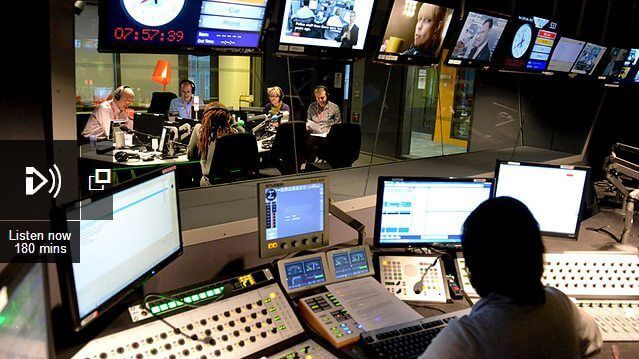[sc:graybox ]This article is cross-posted from Oliver Lovat’s blog. Oliver is a founding Partner at Denstone REA, which offers investment advice on UK real estate and a visiting member of the Management Faculty at Cass Business School, City University in London, and associate tutor at the College of Estate Management.
In London last night it was warm and I went out for dinner, but before ordering my food, I asked our server for a Diet Coke in advance of my meal. There is nothing unusual or radical about this. Coke themselves state that they deliver over 1.9 billion servings per day; just under 1/3 of the world population have a Coke on a daily basis. As I drank my Diet Coke, (before my second drink of water arrived) I thought for a moment why I ordered the drink. Sure it tastes great, and being cold it was certainly refreshing, but was it any more refreshing than water, or any other drink?
A couple of years ago I was invited to a seminar for MBA students run by Coca Cola. It explained their strategy about loving Coke and evolution of the brand, after all Coke is all about brand.
The presenter reflected on one of their legacy strategies, which was that when people are thirsty, the immediate answer to their refreshment should be “an ice cold Coke” and that Coke should only ever be “an arm’s length away”.
Let’s intellectualize this for a moment. Is the natural human condition of thirst best satisfied by a blend of sugar, caffeine, carbonated water and some phosphoric acid?
Thirst has been quenched effectively for centuries in far-off locations and a multitude of cultures before Coke told us that the best way to quench thirst is to buy into their brand, but yet 1.9 billion of us turn to “The Real Thing” on a daily basis.
In the News
The other events of the past week that concerned me in how this conflict is reported was an interview with Greg Philo, who is apparently a communications academic, talking about the current conflict in the Middle East.

Philo makes the point that one can only view the current conflict in the light of the Palestinian narrative and that the reporting of any news from Israel and Gaza must be seen in this context.
Likewise, Jon Snow from Channel 4 News gave a rather aggressive interview, practically accusing the Israeli spokesman of murdering children, invoking a dystopian view of the Israeli state.
Israel vs Palestinians
I recently recalled various spats including school days, (use of swastikas painted in Tippex on Jewish boys’ school bags) to ideological sparring and desk punching in University seminar rooms as an undergraduate, which have evolved the current posting and counter-posting on social media forums such as Facebook and Twitter from my friends who are Jewish and Muslim.
There are two conflicting teams, each with their own message and their agenda. The Israelis say X, Palestinians say Y and the two push their points.
I am under no illusions here. Israel is far from perfect in its conduct over the past 60 years and the Palestinians are certainly no angels either. Both sides have powerful narratives, which have moral, physical and legal validity.
However, there is undeniably a global fixation with Israel as a Jewish state. At one point Jerusalem was only second to Washington DC in the numbers of foreign correspondents and the dedication given to the conflict between Israel, the Palestinians and Hamas far outweighs the more complex, dangerous and bloody situations in Syria, Iraq, Iran and across the region.
I am concerned with the way that Israel is singled out for criticism and the misuse and misunderstanding of Zionism can only be some form of subliminal (or in some cases pronounced) Judeophobia, where preconceived stereotype opinions of Jews (or in the modern more socially acceptable form, Zionists) are used to frame the argument. This is not isolated by a single incident, but a slow drip of images, opinion and historical stereotypes which are pervasive throughout society. Whether we like it or not, these subliminal factors are evident in our thought processes.
These are evident in the words of Mr Philo and Mr Snow, where they are not reporting in an impartial way, but rather interpreting the situation as a result of their perception. Mr Philo’s views on Gaza are clear – he is calling for the end of the State of Israel.
I saw a piece on the BBC website where a photo of Iraq had been “hash-tagged” #FreeGaza. When the poster had been challenged, the response was that the image was illustrative of the conflict. It is very true much of the propaganda materials (and their reproductions) that are disseminated by those who know that they are being fooled, but yet are happy being lied to (and repeating the lies) as it fits their wider agenda.
What I am proposing is that for all of us, can we try and adopt a scholarly approach to absorbing the information coming out of the region and try and really see what is going on.
Intellectual Honesty
I spent some time reading the paper below by Louis Guenin of Harvard University on the subject of Intellectual Honesty. There are lessons that we can apply in commentating, interpreting and understanding the messages in the conflict.
http://guenin.med.harvard.edu/Documents/Intellectual%20Honesty.pdf
When watching the news, there are three questions to ask:
1. Are the Individual Beliefs of the Commentator Seeking to Influence the Truth?
This I suppose is at crux of all independent media (and a problem with the BBC).
In the case of the BBC we just don’t know if they are independent or not as their own internal report into this – The Balen Report – was suppressed at a cost of £350,000 of UK taxpayers money!
Suffice to say, both the Zionist and Palestinian lobbies believe that their side are being misrepresented but until this report is made freely available, the BBC cannot be seen as a truly honest source in reporting the conflict.
The likes of HonestReporting illustrate how frequently major media outlets (who claim not to have agendas) misreport events based on bad journalism (or subliminal Judeophobia), whilst the Arab and leftist press is openly anti-Zionist and on occasion anti-Semitic. (I am aware that some see HonestReporting as a Zionist tool, but it is pretty fair in picking up the inaccuracies which illustrate my point.)
2. Are Facts Deliberately Omitted?
Dr. Guenin writes that truth does not always mean honesty. What he is saying is that you can be truthful in reporting of an event, but it is not strictly honest.
It is truthful to say that Israel broke their ceasefire this week in bombing Hamas targets, but it is not fully honest, as Hamas did not observe the truce at all!
This is particularly apparent when discussing the context in entirety, and we thank a new generation of Israeli historians, such as Benny Morris and Avi Schlaim for identifying this in researching the narratives.
3. Are Right Facts Being Presented In An Unbiased Manner?
This is a particular issue for me. This is not a symmetrical conflict, in terms of military, strategy or morality, therefore collecting facts on the conflict may have more meaning than are immediately apparent.
Frequent facts offered are the number of rockets fired and the number of people killed. The reporters know that this is asymmetric and I hypothesize that the reason that this “fact” is given is to show the power of the oppressor, versus the ramshackle, home-made efforts of the poor, underdog Palestinians. (Note, Hamas is well funded, with investments, offices and funds held across the Middle East. Its rockets/missiles are Syrian and Iranian sourced, and are not home-made – it is not the 1980?s intifada.)
There is a clear intent to use “facts” to generate emotions and in my mind there is an agenda every time this fact comes out. The presentation of this metric as a defining one is as insidious as it is fatuous.
The Coke Question
The nature of fast moving events leads us to rush to judgment on everything we see, based on the assumed knowledge that we have of an environment and a conflict.
As natural as it is to get a Coke on a hot day, there is a reason why we have been conditioned to want one. Let us be honest in appreciating that, but moreover, let us be honest when appraising what is going on the Middle East.
Try and set aside your preconceived narratives and ask honestly,
- Are the individual beliefs of the commentator seeking to influence the truth or deliver an agenda?
- Are facts deliberately omitted, even those that disprove the narrative?
- Are the right facts being presented in an unbiased manner?
I know it is not easy to try and change your beliefs. Coke still tastes good, but in truth, it is no better than iced water in quenching thirst. For each us, try and step back and look at the bigger picture of what is being said, by whom and why. Challenge not just the truth, but the honesty of the truth and I hope that the conflict will become clearer.


